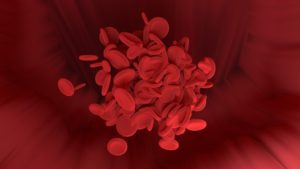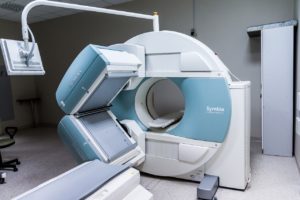Systemic Mastocytosis
What is systemic mastocytosis?
Systemic mastocytosis is a disorder that is characterized by an excess of mast cells, which help to heal wounds and protect from disease. When there are too many of these cells, they can create a response that overwhelms the body.
There are several forms of this condition, including indolent and aggressive.
What are the symptoms of systemic mastocytosis?
Symptoms include:
- Itching
- Stomach cramps
- Lightheadedness
- Facial flushing
- Losing consciousness
These effects are often triggered by something, such as alcohol, spicy food, medications, or changes in temperature.
What causes systemic mastocytosis?
The majority of cases are caused by a mutated KIT gene. This gene is responsible for a protein that aids in the development of mast cells and helps to control many other cellular processes. Mutations lead to the overproduction and accumulation of mast cells. The majority of these mutations are sporadic, but if they are passed down it is in an autosomal dominant pattern.
How is systemic mastocytosis diagnosed?
Doctors will use a variety of tests to diagnose this condition, including blood and urine tests, CT scans, ultrasounds, X-rays, and a bone marrow biopsy.
What are the treatments for systemic mastocytosis?
The treatment for systemic mastocytosis includes medications like antihistamines, aspirin, and medicines that will fight against the substances that mast cells release. If one has a very aggressive form, chemotherapy may be required to kill large amounts of mast cells.
Where can I find out more about systemic mastocytosis?
Mabry Syndrome Articles


Living with Systemic Mastocytosis: How Tracy Dares to be Rare (Pt. 3)

Living with Systemic Mastocytosis: How Tracy Dares to be Rare (Pt. 2)

Living with Systemic Mastocytosis: How Tracy Dares to be Rare (Pt. 1)

Positive Data Reported From Clinical Trial for Advanced Systemic Mastocytosis

Study Finds Systemic Mastocytosis Patients Without CMIHR History Don’t Need Premedication Prior to Imaging

The First Successful Treatment for Systemic Mastocytosis Has Been Approved by the FDA







